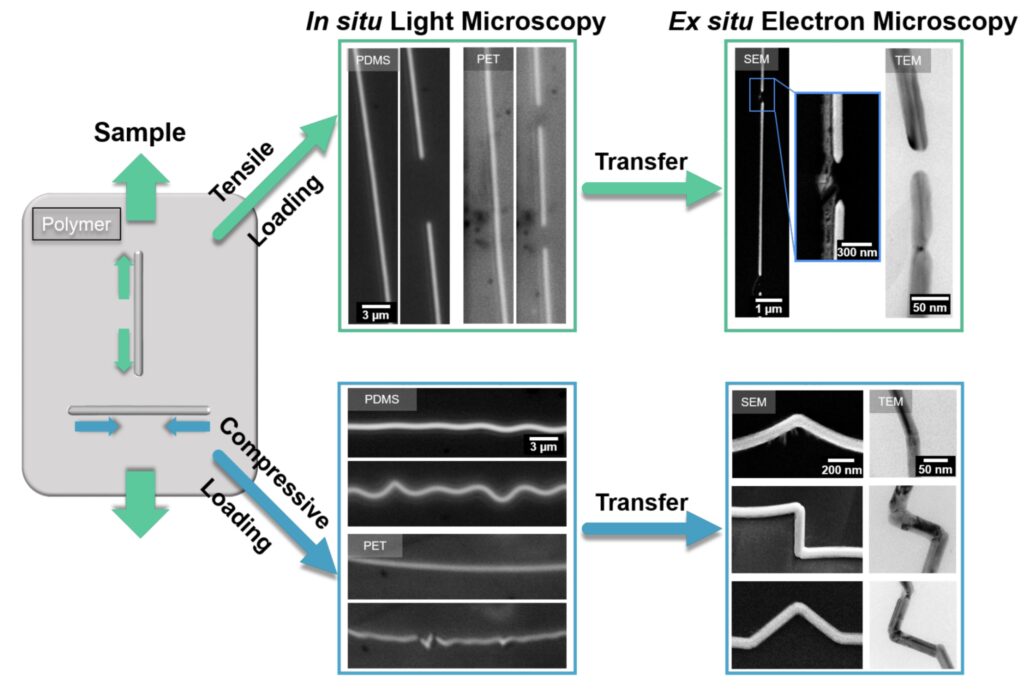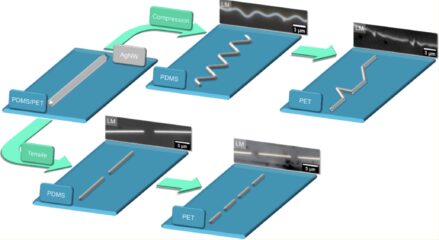Silver nanowire (AgNW) networks are among the most promising candidates to replace brittle indium tin oxide as transparent conductive electrodes in flexible devices such as solar cells, light-emitting diodes, and sensors. In a recent study published in ACS Nano, researchers from the Institute of Micro- and Nanostructure Research (IMN) provide unprecedented insights into how individual nanowires deform and fail under mechanical loading when supported on flexible polymer substrates.
Using a correlative microscopy approach that combines light and electron microscopy, the team systematically investigated the mechanical response of isolated five-fold twinned silver nanowires on two widely used polymers, PET and PDMS. By carefully controlling nanowire orientation during tensile, compressive, and cyclic tests, they revealed distinct deformation and fracture modes dictated by wire–substrate adhesion.

On PET, strong adhesion caused the nanowires to fracture into multiple equal segments under tensile strain, while on PDMS, weaker adhesion allowed only a single fracture event accompanied by wire sliding. Under compression, the nanowires exhibited pronounced kink formation, associated with the creation of new grain boundaries that enabled the wires to withstand high strain without losing connectivity. Remarkably, cyclic tests on PDMS showed that elastic deformations remained fully reversible over 1000 cycles, while plastic deformation sites eventually acted as fatigue-induced fracture points.
These findings not only deepen our fundamental understanding of nanoscale mechanics but also deliver practical guidance for designing resilient silver nanowire electrodes in next-generation flexible and stretchable electronics. The work was carried out within IMN by Marco Moninger, Lilian M. Vogl, Peter Schweizer, Peter Denninger, Patricia Smolka, Johannes Will, and Prof. Erdmann Spiecker, with support from the DFG research training group GRK 1896 and CRC 953.
More information:

